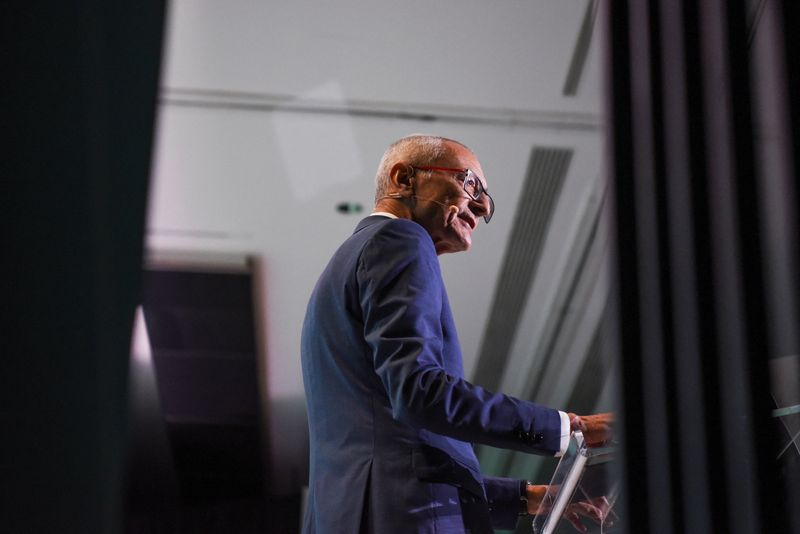By Nichola Groom and Richard Valdmanis
(Reuters) -U.S. imports of solar panels are finally picking up after months of gridlock stemming from implementation of a new law banning goods made with forced labor, according to two Chinese solar companies.
A White House official confirmed the thaw in shipments at an energy conference on Monday, attributing it to clearer rules around complying with the Uyghur Forced Labor Protection Act (UFLPA).
The gains are a relief to major Chinese suppliers including Trina Solar and Jinko Solar, who are finally getting products into the lucrative U.S. market after long delays.
The labor protection law prohibits imports of products made in China's Xinjiang region, where Chinese authorities are reported to have established labor camps for ethnic Uyghur and other Muslim groups. China denies any abuses.
The movement of panels that have been stuck at the border or awaiting shipment from overseas should help alleviate delays in U.S. solar project development stemming from implementation of the law, which went into effect in June of last year.
The freeze in project building posed a risk to the Biden administration's clean energy and climate change goals, the industry has said.
"There's clearer guidance out, and we're seeing more shipments coming through,” John Podesta, a senior adviser to President Joe Biden on clean energy matters, told reporters on Monday on the sidelines of the CERAWeek energy conference in Houston. He did not give details on the quantity of panels that were making it through customs.
Trina Solar Co Ltd told Reuters that more than 900 megawatts of its solar panels have cleared U.S. customs in the last four months, with less than 1% of those products being detained for examination. That's about enough capacity to power more than 150,000 homes.
"Trina's data systems and supply chain management allow us to provide detailed traceability documentation, upon request by the U.S. Customs," a Trina U.S. spokesperson, Melissa Cavanagh, said in an email. "This has significantly reduced delays at the ports."
The UFLPA essentially presumes that all goods from Xinjiang are made with forced labor and requires producers to show sourcing documentation of imported equipment back to the raw material to prove otherwise before imports can be cleared.
Trina rival Jinko Solar Holding Co Ltd has also had shipments released from detention, a source close to the company said.
As of October, U.S. Customs and Border Protection had seized more than 1,000 shipments of solar energy equipment under UFLPA, the agency said in response to a public records request. None had been released.
The products were primarily made by Trina, Jinko and Longi Green Energy Technology Co Ltd, according to industry sources. Those companies typically account for up to a third of U.S. panel supplies.
Longi did not respond to requests for comment.
In response to another public records request last month, U.S. Customs said it had released 374, or more than a quarter of 1,433 electronics shipments it had detained under UFLPA. It would not specify how many of those were solar products.
Polysilicon, the solar industry's raw material, is identified as a high-priority sector in the law.
